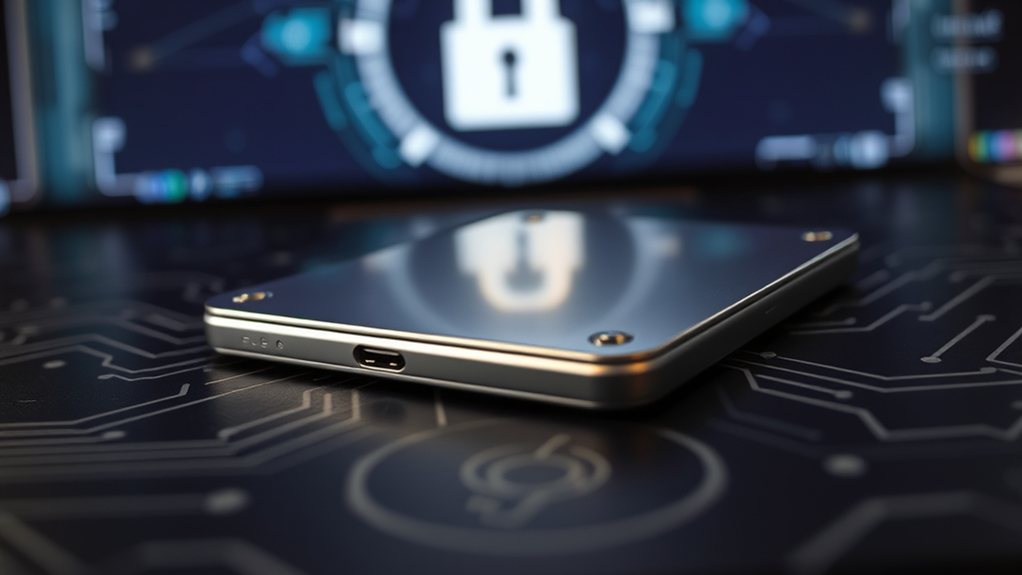Crypto investors face constant threats from hackers and thieves. Hardware wallets provide the strongest protection by keeping private keys offline. Two-factor authentication, unique passwords, and VPNs add essential security layers. Cold storage methods isolate assets from internet threats, while avoiding public Wi-Fi reduces vulnerability. Experts recommend limiting funds on exchanges and watching for phishing attempts. Proper security practices can greatly reduce the risk of losing valuable digital assets.

As digital currencies continue to grow in popularity, the need for strong security measures has never been more significant. Cryptocurrency owners face many risks in today's digital world. Hackers and thieves use advanced methods to steal digital assets. Understanding the options for secure storage is the first step to protection.
Hardware wallets currently offer the highest level of security for long-term crypto storage. These physical devices keep private keys offline, away from internet threats. In contrast, software wallets provide more convenience but come with increased risk of hacking. Mobile wallets allow quick access but can fall victim to malware attacks. Some users opt for paper wallets, which store private keys offline but can be damaged or lost.
Private key management forms the foundation of crypto security. The private key works like a password that proves ownership of digital assets. Experts note that these keys should never be shared with anyone. Many security professionals recommend storing backups in multiple secure locations and using strong encryption for digital storage. Some advanced users implement key sharding, which splits keys into separate pieces for added protection.
Secure internet practices play an important role in defending crypto assets. Using a VPN when accessing accounts adds a layer of protection. Two-factor authentication serves as an essential security feature on all platforms. Security researchers advise against using public Wi-Fi for transactions and emphasize the importance of unique passwords for each account. Using a reliable password manager can help generate and store complex passwords securely.
Cold storage has emerged as a preferred method for securing large crypto holdings. This approach keeps assets offline, away from online threats. Cold wallets keep private keys completely isolated from the internet, making them virtually immune to remote hacking attempts. Many institutional investors use air-gapped computers (machines never connected to the internet) for cold wallet management. Time-locked transactions add another layer of protection for large withdrawals. Regular security audits are essential to identify and address potential vulnerabilities in the cold storage system.
Exchange security deserves special attention since many hacks target these platforms. Investors should research exchange security practices before use and limit funds kept on exchanges to only what's needed for active trading. Reputable exchanges now offer insurance policies to protect against certain types of losses.
Phishing attacks remain a common threat to crypto owners. These scams often arrive as fake emails or messages that appear legitimate. Security experts recommend verifying URLs before clicking links and being wary of unsolicited communications about crypto investments.
Regulatory compliance has become increasingly important in the crypto space. Many countries now require specific security practices and identification procedures. Organizations handling crypto regularly conduct security audits to identify potential vulnerabilities.
Industry participants often engage with security communities to stay informed about the latest protective measures and emerging threats.
Frequently Asked Questions
How Can I Spot Phishing Emails Targeting My Crypto Accounts?
Crypto phishing emails often contain urgent language demanding immediate action. They'll impersonate legitimate exchanges or wallets.
Red flags include requests for private keys, suspicious links, and poor grammar. Users can identify them by checking mismatched email addresses and hovering over links to reveal suspicious URLs.
Official exchanges don't ask for seed phrases. Legitimate companies communicate through verified channels and never threaten account closure without proper verification.
What Hardware Wallets Offer the Best Protection Against Quantum Computing Threats?
Hardware wallets implementing quantum-resistant technology offer protection against future quantum computing threats.
Ledger Nano X/S+ and Trezor Model T both incorporate post-quantum cryptography in their devices.
Ngrave Zero features air-gapped, quantum-resistant technology with the highest EAL7 certification.
BitBox02 uses quantum-resistant signature schemes with dual-chip design.
These wallets aim to defend crypto assets as quantum computing advances, though no wallet is completely future-proof.
Are Crypto Insurance Policies Worth the Investment?
Crypto insurance policies are gaining popularity as digital asset holdings grow. They offer protection against theft, hacks, and operational errors.
With only 1-2% of crypto assets currently insured, premiums remain high. Coverage typically includes both hot and cold wallet storage options.
Market analysts note that while policies can provide financial recovery after security breaches, limitations exist on coverage amounts and specific exclusions apply to certain types of losses.
How Do I Secure Assets During a Blockchain Fork?
During blockchain forks, crypto owners should move assets to self-custody wallets before the fork date.
Experts recommend backing up wallet seed phrases offline and avoiding transactions immediately before and after the event.
Many users utilize hardware wallets for added protection.
Exchange customers should verify if their platform supports the fork.
After the fork, it's common practice to use separate wallets for original and new assets.
Can Multi-Signature Wallets Be Implemented Across Different Cryptocurrency Types?
Multi-signature wallets can be implemented across different cryptocurrency types. These wallets currently support Bitcoin, Ethereum, ERC-20 tokens, and Binance Smart Chain.
They're available on desktop, mobile, and hardware devices. About 20% of Bitcoin's supply is held in multi-sig wallets.
Each blockchain requires specific smart contract implementations. The technology works with various consensus mechanisms and is gaining popularity among institutional investors and DeFi protocols.














